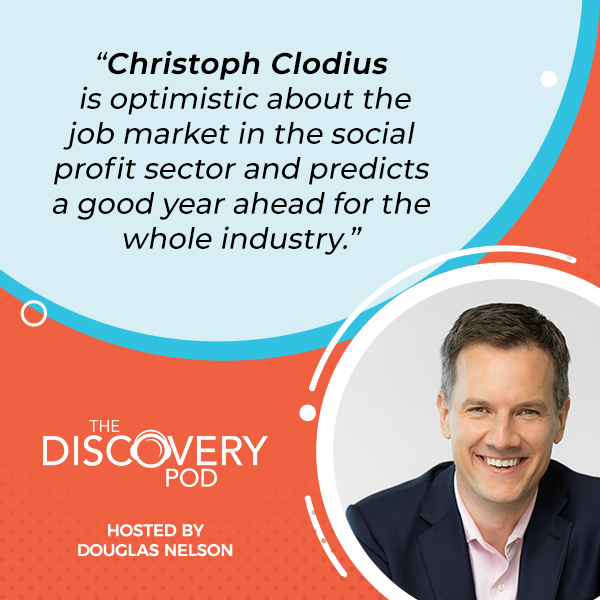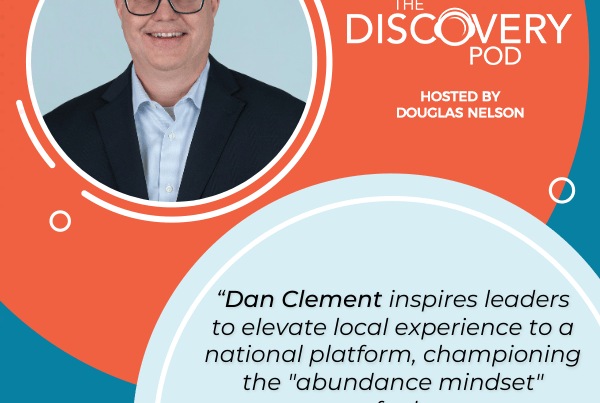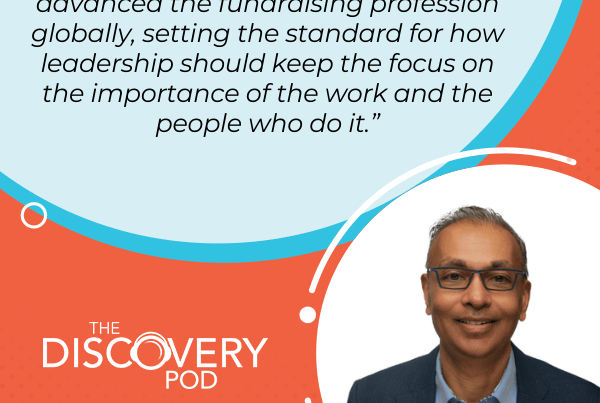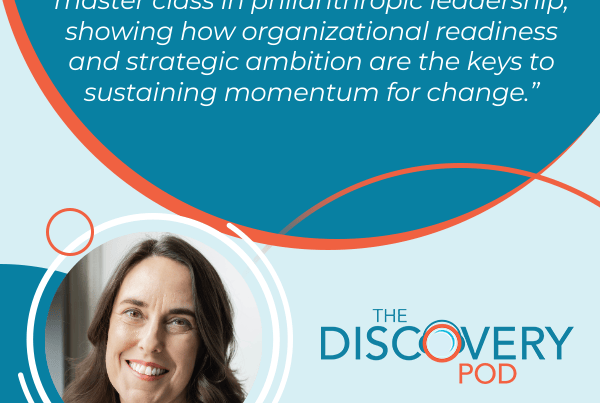
Let’s dive deep into the employment trends and best practices. In this episode, Christoph Clodius, the VP of The Discovery Group, delves into the issues of recruitment retention and career building. He also provides insights into what Leaders should do to recruit qualified and committed Board members. Before you look for a job, listen to Christoph as he shares elements of what makes a great job. If you want to know how to build your board members or where is your next job, you might want to listen to this episode. Join Nelson Douglas and Christoph Clodius dive into the employment trends today.
—
Listen to the podcast here
Employment Trends & Best Practices With Christoph Clodius, VP, The Discovery Group
On this episode, I have my colleague, my friend, Christoph Clodius, Vice President of Executive Search here at The Discovery Group, joining me for a deep dive conversation into the issues of recruitment, retention, and career building. If you’ve wondered how to build that board that reflects your community, how to attract that team that’s going to take your organization to the next level, and where your next job is going to be, you’re going to want to read this great conversation. Focused on the issues of our social profit sector in 2024. Thanks to Christoph for being a part of this, and thanks to you for reading.
—
Welcome to the show, Christoph.
Thanks, Doug. It’s great to be here.
It is excellent to have you back on. You’re joining a group of only three other guests who have been on the podcast for a second time.
I’ll try to do a good job. You set a high standard with your other guests. I’ll do it again.
I want to jump right in because the question that I hear a lot in my work with CEOs, and I know you hear working with organizations, is, what does the job market look like in our social profit sector? What are the predictions you have for the year to come?
I’ll try to predict what I can certainly, but what I’m seeing and hearing, and you are as well, is that the market for leaders, the market for great fundraisers, the market generally speaking, is tight. It remains competitive. Good people are always in demand, and I don’t see that going away. I also see, think about, and get a lot of questions, for that matter, on remote work, work from home, and flexible work arrangements. We’re not fully post-COVID yet, necessarily, but I see the pendulum swinging back and forth. It’s swinging more towards office environments and wanting to build those internal cultures again. That’s something I’m seeing. That’s impacting job seekers and employers, for that matter.
At the leadership levels, I’m seeing more, and this has always been the case, but leaders are being much more pensive, and critical. There’s been less inclination to jump from something as opposed to people thinking critically about where their career is going and what they want to do as a next step. They’re taking their time and searches as opposed to thinking that they need to move quickly.
One of the things I’ve heard you talk about is the thoughtfulness that people are taking with their next career step. I’m wondering if you’re seeing that on the organizational side. When there’s a vacancy that comes up, whether planned or unplanned, are they taking the time to think about, review the role, or change the role significantly? Is it steady, and she goes, “Let’s get the next person up?”
The good ones are the ones that have the capacity to take the time and do it right. For leadership transitions, you want to do right the first time. Those who appreciate don’t want to go to market too quickly or be thoughtful about what the organization is facing. I’ve worked with a few clients who are undergoing some significant changes and are taking their time. They’ve been deliberate and thoughtful about what they want to achieve and the right competencies, traits, and backgrounds of the people they need to help fulfill these directions. It’s an exciting time. I’m pleased when organizations do it that way.
Those are those deeper conversations about how these leadership roles fit into the life and the purpose of the organization. We have the opportunity to work with organizations struggling to get some things right. For the most part, our clients are doing strong work in advancing their organization. What do you see that most successful organizations are doing right in their hiring?
There are a few things they’re doing right. They’re realizing that, for many candidates and the people that they’re looking at, there’s a new view of work in some ways. Candidates want work to be fulfilling. People want fulfilling work. Work isn’t everything to someone necessarily. Both realized and unrealized in some capacities, conscious or unconscious, candidates think more actively about how work fits into their lives.
The most successful organizations appreciate that. They’re taking the candidate’s experience into view, for that matter. They’re thinking about how they present as an organization, what they offer people, and what opportunities are coming ahead for professional development and professional growth. They’re also being transparent about what the benefits are. Beyond compensation, what does it mean to work here, what are the benefits, and what’s the total package and rewards?
Most importantly, they’re thinking critically about mission alignment for the people they want to bring in and make sure they can talk about the impact of a particular role. They are making sure that there’s clarity of purpose, fairness in assessments, and a link to impact for everybody in an organization and what it is that they’re doing. When they’re hiring people, they’re talking about their organization. They’re clear and deliberate about both the impact of the work and what the mission of the organization is trying to fulfill.
I almost hesitate to ask this because I don’t want to reveal it to anyone.
You don’t have to. It’s okay.
What are some of the common mistakes your organizations are making when hiring?
The corollary to everything I’ve mentioned is simplistic, not considering the candidate’s experience or not necessarily focusing on impact, but some other things I see that are valuable for people now in the sector are the importance of inclusivity, diversity, and equity in practice in an organization. Candidates are being critical and thoughtful. They can see quickly when an organization is paying lip service to DEI when it’s not important to an organization that is a statement and nothing more for that matter.
This is a common theme in all my several years of searches. Organizations talk first about the qualifications, qualities, and competencies they’re looking for in a person as opposed to talking about the organization first. Putting the mission at the forefront of the recruiting efforts and hiring efforts is important.
From a practical matter, because it is a tight and competitive candidate market, narrow competencies and qualifications, focusing only on the local person or the person with X number of years of experience, not thinking critically about transferable skills, people later in their careers or the “overqualified people,” casting them out with a simplistic look or a quick no. Being open-minded is important when organizations are hiring.
On that open-mindedness, there are two issues that I hear a lot about when speaking with CEOs and their leadership teams. I’m curious how that shows up in your work and conversations. One is the generational divide, like Gen Z and Millennials. Is that something that’s real in our sectors? Is that something you’re encountering in the searches you’re leading?
It is, more often than not. It’s simply a bias against that generation. When you say those people are that generation, it’s a bias against people you don’t understand or a group of people you’re uncomfortable with or not used to managing. It’s an unfortunate reality. There are certainly some generational differences. Coming out of COVID, some of these pieces around a broader definition of work, or at least expanding one’s life to include work as an element of it and not the only piece. That comes up quite importantly, for that matter.
The clarity and fairness of expectations of a role are important for people and are becoming more important as people have chosen to work in this sector. You and I have stumbled into the sector. We’re not going to leave it. We love it, necessarily. People earlier in their careers are being deliberate. They may have taken a degree program, a certificate, or a positive early experience with a mentor with some volunteering, and they’ve chosen this as a career. Subsequently, that fundamentally changes their perspective of the sector and the work. That’s an important consideration.
None of the articles I’ve read about the difference between Gen X leaders and Gen Y and Gen Z employees ring true to me. It sounds like an old man standing on launch shouting at the sky, the leaders who want to adapt there. There is something in one of your earlier answers that may cast some light on it.
You talked about the differences between organizations that lead with the qualifications and expectations for the role versus leading with the organizational purpose and the change they seek to make in the world. I wonder if that’s generational. That’s that feeling you need to lead with your qualifications to be worthy or credible in the role. Younger employees want to understand the purpose because they are being considered in the decisions they make related to their careers and how work fits into their lives.
Another lens to take might be that people within an organization are living and breathing the organization. They’ve been a part of it. They understand the mission, and they feel entitled to have good people join them. They feel that we’re a great organization. Shouldn’t everybody know about us already? I’m here and doing great work. Don’t you see the great work I’m doing?
They are not consciously putting that out into the world. Putting it into the world means engaging with demographics and people in a different way that you yourself may not be used to through social media or various apps. Facebook is already quite outdated, as I understand it. Thinking about how we engage with our donors, with our new potential staff, and with volunteers has shifted significantly even in the past couple of years.
We’re talking about recruiting and hiring. That’s an important part of your role. One of the other issues is you spend time talking to people, and it comes up in a lot of the strategic planning questions or issues engagements we’re working on. It is retention. The statistics are that the candidate did a survey of the sector at the end of 2021. They found that a third of organizations ranked employee retention as their top issue. Since then, this trend seems to have been increasing more. I’m hearing it a lot from fundraising leaders who are trying to build and retain their teams. What can leaders do to mitigate this retention issue? How can they keep their team connected, collected, and focused on the task?
There are a few things that we’ve talked about. I would come back to the clarity and the fairness of evaluating and supporting staff within an organization. Always linking that to impact as much as possible is important. At the risk of contradicting myself, I would say, “Don’t emphasize or don’t overemphasize necessarily benefits financial pieces.”
People want to be paid fairly. If your salary and your compensation are fair, that’s not the reason people leave. Quite often, they leave more because they don’t feel a part of the organization. They don’t feel recognized and thanked. That takes no financial resources. That takes time, which I know we all wish we had more of, for that matter. Recognizing, thanking your staff, and giving them a pat on the back for a job well done, and that can be a virtual pat on the back or a call from a board member, and thinking about it from a bit of a donor lens.
How do you thank your donors? You don’t throw money and a ton of gifts at your donors. I know many organizations do, but that’s a different conversation for a different time. You want to recognize and thank them for having an impact on your bottom line and supporting your organization. Tying to that is a path for professional development and growth.
It doesn’t take a lot of resource investment. There are things you can do internally that are relatively cost-effective, whether cross-training, internal mentoring programs, or external mentoring programs. I’m an AFP mentor, and I love that. There are opportunities to get involved with different organizations in different ways. Coming from that is supporting your staff’s own growth through them, taking ownership of it, seeing them in their own paths, and working with them to understand as an individual what it is that they want to achieve.
I heard from another smaller organization that they hire and recruit people earlier in their careers. They train them up and inevitably lose them to larger shops. That’s the perception they have. What I want to say to groups like that is, “Identify those people early and people that might be at risk.” To do that, you need to have some open and frank conversations with them. Do that early. Don’t make that the exit interview. Make that the entrance interview. What path do they see themselves taking within the organization?
Is it that organizations don’t spend the time to think that through? Is it that they’re not sure themselves? Is that a knowable answer for most organizations?
It’s a combination of things. I don’t think they have the time or capacity to do it. Staff retention can often end up on the metaphorical side of the desk project. It’s also not necessarily understanding in every case those impact factors, where they’re going as an organization, and how an individual may fit into that. For some managers, this is an important piece that I didn’t mention. We still, to some degree, in the sector have this mentality that to succeed and grow in the sector, you need to be a manager of other people.
We put people who aren’t necessarily equipped, trained, or supported to be managers and leaders of other people. We give them staff and say, “Go to it. You’re a great fundraiser. Here are four fundraisers. Manage them.” Many people leave because they don’t get the support, the direction, or the culture they want from their direct leader.
It’s a big issue in our sector that people are consistently asked to do things they don’t know how to do and given no support on how to do it. Just because someone is a good fundraiser doesn’t mean they’re going to be a good manager. I often reflect on the career trajectory where you start as an individual on a team, and you want to lead the team.
We’ve both heard people say they want an opportunity where they can lead more people and have more people reporting to them. You get to a certain stage of your career, and you want fewer people reporting to you, and that is what success looks like. You want to grow it up, and you move into senior leadership. You’re like, “How do I get my direct reports down to three?”
One of the other issues that I hear a lot about in my conversations that comes up quite a bit is how compensation is handled in the sector. There’s been a lot of progress made in terms of sharing the salary and posting jobs. Some sharing salary ranges between $60,000 and $210,000. I saw one. I thought, “I don’t know that’s transparent.” What are you seeing in terms of conversations about executive compensation or compensation in general in the sector?
I like the transparency. I hope it’s an anomalous one to have such a wide range. The salary transparency trend has been of great benefit to the sector as a whole in getting people to understand what fairness looks like and what compensation packages look like. It alleviates a lot of awkwardness. It takes some of the power dynamics out of negotiations and things like that right off the bat.
Generally speaking, some of the dialogue that you may be alluding to is around social profit leader salaries and the pushback. The social profit sector is allied in understanding that this is a challenging sector that we work in. The value and the impact that leaders have justified the salaries that they make, particularly when you compare them to other areas. However, that for-profit, not-for-profit dichotomy is feeding some of this.
The value and impact leaders have justified their salaries when you compare them to other areas. Share on XI love the transparency piece. That’s something important and worth handling and holding onto. I don’t know that we as a sector necessarily need to spend our time justifying the compensation that leaders make. That’s an important piece. If anything, we need to focus on the impact that the sector has and the leaders are delivering ultimately for their cause.
Another spinoff effect that I’m seeing a lot in organizations is particularly when leaders’ compensations are posted. It causes organizations internally to reflect on their own compensation across the board and within an organization. People elsewhere in the organization are thinking, “My CEO makes this. I’m at a manager level. I make X or Y.” It causes HR practitioners some consternation in regards to how we manage that balance in regards to those perception pieces when not all roles and organizations have transparency across the board.
Increasingly, we’ll see that transparency come out within organizations and between organizations. I like the point you made there about not wasting our time justifying what salaries are and not wallowing in the comparison between profit or social profit organizations. The comparison to for-profit organizations always rings defensive. It sounds like it comes from a place of scarcity and weakness. For our sector to be strong, we need to be talking about those social impacts, as you described.
I would love to hear more leaders and boards talking about how they have been thoughtful in putting together the compensation packages for their executives because we work with a lot of organizations that have detailed performance review processes. I know you lead that service for a number of organizations. Boards are being thoughtful. They want to be credible and responsible with the dollars entrusted to them in their organizations, but it’s not about comparison. It’s about what’s doing right for the organization and the work that our organization is doing in the community.
A lot of conversations I have with board members are to give them the confidence and views of other organizations. What are the comparables? What is happening in the sector? I get a lot of questions about incentive pay or bonus pay. I got a lot of questions about comparators for holidays, benefits, and probationary periods. Board members who come with a for-profit background need some guidance. I’m glad they’re asking the questions because they’re doing their due diligence. Support for their work is important.
An emerging issue, one to keep an eye on in the months and years to come, is, I suspect we aren’t going to see social profit leaders signing contracts and have it announced like, professional athletes do three years, $3.47 million or something like a hockey player, but one can always hope.
You never know. That’s something to keep an eye on.
One of the other issues that I know is coming across your desk is the role of board members, in particular, the recruitment of board members. Anyone who spends time on LinkedIn knows that there is an ocean of organizations seeking board members and wanting people to join. If you’ve got a fundraising, accountancy, or legal background, you could have a board meeting every morning and every night. It’s getting harder to attract those board members. What can leaders of organizations, either board chairs or CEOs, do to recruit those qualified, committed board members?
We do see those posts. Organizations that are posting board roles should be commended because it means that the board members themselves are not simply using their own networks, deploying their own circles of influence and contacts to recruit. The result of that is a homogenous board or a board that lacks diversity when you’re constantly recruiting from your own pools and networks.

Employment Trends: Organizations posting board roles should be commended because it means that the board members are not using their networks to recruit. After all, they are often a homogenous board that lacks diversity.
Putting recruiting efforts out into the world, being deliberate, strategic, and thoughtful. Hopefully, it’s more than a posting. Being clear in the needs and expectations. What is it you’re looking for? Be it a particular skillset like accounting or fundraising, a board member at large, somebody to steer an organization through a transition, or a board member who can help set up the organization. That’s the next strategic planning.
Anything specific that you can help entice a board member to is going to be important. Being clear about expectations, whether those are deliverables around time. Is it documented? Do you have a job description? It’s like what I was talking about before in recruiting staff. There are lots of parallels here. You are focusing on the mission and impact of the organization. You’re leading with that. Many lower-profile organizations struggle to convey what it is that they do and what board members might be contributing to that.
One of the concerning and challenging issues that a lot of organizations are facing is the commitment that they have stated and written down. It’s in a lot of strategic plans I’ve read, but they want the board to reflect the community that they serve or the community in which they do their work. We often hear organizations saying, “This is what we want to do.” They stop because they don’t know how.
What advice would you have for an organization that wants to diversify, to be less homogenous around the board table, to have a board that doesn’t look like you and I and they don’t know where to start, or they’ve tried a couple of things that didn’t get them where they wanted to be, and now they’re stuck?
The important piece is to think about those constituents they want to represent in the communities. Ask questions of leaders in those communities, whether it’s geographic representation, communities of practice, or client organizations or members. Think about X clients and alumni in the case of a post-secondary and education institution that might be a parallel.
Be deliberate and thoughtful about those pieces and ask the question. Be clear that this isn’t a token representation. That speaks to clear expectations and focus on the needs of an organization. Make sure the right person is making those approaches. It should be the board or the governance chair, whatever that might look like. You don’t want to do it piecemeal or have people make random forays into the world.
You’ve underlined how to get started. The commitment to reflecting on the community you serve takes time. For organizations that have started down this path that may not have had immediate success or may have had a small oum of success, keep going. The power to stay focused and to make sure that you execute this plan to have that board that reflects your community is there. It’s going to take a lot longer.
These things do not happen overnight. They need to be thoughtful and strategic. Sometimes, you’re going to fail. You’re going to take a few shots, and they’re not going to work out necessarily. You’re going to make a few attempts, and they’re not going to work out necessarily. Stick with it, be persistent, and keep that vision and mission in mind. That should be what it is that drives you forward, what it is that you want to achieve, and who you want to represent.
Keep that vision in mind. That should be what drives you forward. Share on XWhen you’re recruiting for boards, I’m wondering how often the board says, “The great work we do is the greatest kept secret in the certain name of town.” How often does that come up?
That comes up all the time. That’s best kept secret. We’re unique as an organization. Nobody gets us. People don’t understand us. We’re unique because X, Y, and Z. Those are common.
We are all unique, and that is what makes us the same.
People within an organization who have spent time there need to take a different perspective. View it from the candidate and donor perspective. If I don’t know anything about you as an organization, if you are that best-kept secret, what should I know about you? Should I know that you’re looking for a board member? Should I know, first of all, that you’re doing incredible constituent work in X, Y, and Z? Are you helping eradicate this particular social ill, or are you helping to cure this disease? Start with that and talk about what it is that you’re looking for.
Lead with purpose, not the qualifications you’re looking for. That’s what you said about hiring for the professional roles. I’ve got a couple more questions for you that I want to get to before we run out of time here. Christoph, what makes a good job when organizations are looking to hire a senior leader? Some of them, I know by looking at the listings and listening to the opportunities and spotlights to do, some of them are like, “That’s a great job.” What are the elements that make a great job for someone looking at a new role?
The ability to have an impact, make a difference, and do meaningful work makes a difference and makes for a good job. Working in a team where there’s a strong and dedicated culture, openness, transparency, and support does a great job. At the risk of repeating myself, clarity of expectations and clarity of role. Lots of roles come with inherent ambiguity. That’s perfectly fine.
In this space, we’re all doing everything. I talk a lot to organizations that are smaller teams where you have to have generalists who do a little bit of everything, but at least a clarity of a goal. What is it that we’re trying to achieve here? Are we trying to achieve an X percent increase? Are we trying to increase our donor base? Are we trying to develop a great start plan? Are we trying to recruit new board members? Whatever that clarity of purpose and clarity of tactics to achieve the purpose,
You spend a lot of time working with the clients and organizations you’re working with to find senior leaders, particularly on fundraising. What are the measures of success? How would a candidate know they’re successful when taking on this job? That’s something that leaders can do in hiring where they’re not using executive assault search consultants. It’s something to think through when they’re doing any hiring, even when looking at board members. What does success look like? The fifteen minutes spent on that question can save a lot of organizational pain.
Where board members struggle there is, they might put the emphasis on measures when they’re bringing in a new CEO or ED, measurable impacts for the first few years. As we know, a leadership transition takes time. A new leader may come in, find some things, make some discoveries, and want to take the organization, the strategy, or some tactics in a slightly different direction than the last person.

Employment Trends: Leadership transition takes time. A new leader may come in and find some things, make some discoveries, or want to take the organization, strategy, or tactics in a slightly different direction.
Things at the staff level are different from what the board may have anticipated or has heard about. There does need to be some thinking about what success looks like, but expectations specifically for a new CEO or a new ED coming in, we don’t want to saddle them or have them do X or Y. We want to give them some guidance but not necessarily tie their hands, particularly early.
I have two last questions. This is for all of the people who may be looking for a new role or interviewing in the next couple of months. One of the most dreaded questions that people have when they’re looking for a role isn’t the, “Tell us your greatest weakness, or if you were an animal, what animal would you be?”
In my own hiring that I’ve done over the years, where I’ve seen candidates lose the job that they were leading in the interview process, was how they responded to the question, do you have any questions for us? What advice would you have for candidates in the interview process or thinking about it? How do you answer that question?
My advice to candidates is always to have questions ready and be curious. That’s one of the things that boards and hiring managers love. They want someone who’s engaged, curious, and fundamentally interested in the work. Do some research into the organization, have some specific questions, and make sure you’re tailoring those questions to the audience. You don’t necessarily want to ask a board member or board chair about the staff culture on a day-to-day basis. They’re not equipped to answer that. You can ask board members about vision, strategy, and long-term goals.
Be curious. That's one of the things that boards and hiring managers love. They want someone engaged, curious, and interested in the work. Share on XAsk specific, pointed questions. If it’s important to you, this is your opportunity to do it. I spoke before about the candidate’s experience. Be ready as a candidate to think about what it is that you’re looking for. Board members and staff love having questions. You don’t necessarily need to show that you’ve done a ton of research into the organization. You’re not going to be quizzed into line seven of the financial statements. Your questions should show insight into the organization that you’ve done some research on, and think critically about what this organization might look like and what that looks like fundamentally.
As you were giving that answer, I was thinking through the last few times I’ve heard someone answer that question. Generally speaking, the worst way to handle that is, “No, I don’t have any questions. I was hoping you’re flexible on the upper range of the salary.”
Tell me about the pension plan. Having that in that conversation, particularly with the board members or staff leads, can be contentious. On the opposite side of that, as a candidate, if you’re not given the opportunity to ask questions, that is a major red flag. That shows that the organization doesn’t have a particular interest in you as a candidate.
They don’t want to be open or transparent about what the candidate is getting into or understand their perspective. If it’s a one-way interrogation, that’s a significant concern for candidates. I always build in with all my clients in every meeting and interview. There always needs to be a reciprocal dialogue there. There always needs to be some questions and clarification from both sides.
Christoph, your thoughts and insights here are valuable, as always. As someone who grew up as a fundraiser in the sector, I’m always amazed at the work that you do on a day-to-day basis and how intensely focused it is on the people you’re working with. We talk about fundraising, being a contact sport, and being out and talking to people as much as possible.
The number of conversations you have on any given day with people with potential candidates and clients who are looking to fill roles is remarkable. How do you keep your energy up? How do you stay restored? I’ll get your calendar and see 8 to 9-and-a-half-hour slots in the day, and I think, “I’m glad I’m not Christoph.”
I do enjoy the work first and foremost. We talk about impact, teams, culture, and clarity of responsibility. Those are all the things I live on a day-to-day basis. I enjoy it. When I hear good feedback, it’s endearing and heartwarming for me to speak to candidates in particular. In a weird way, for the candidates who don’t get the job, I pay almost as much attention as the ones who do because only one person in a typical organization will get the CEO or VP role.

Employment Trends: A typical organization will get the CEO or VP role. But I need those people who don’t get the job to have a positive experience and gain something because they’ve put time, effort, and emotional energy into this.
I need and want those people who don’t get the job to have a positive experience and gain something from this because they’ve put time, effort, and emotional energy into it. I like to think I’m fairly empathetic and want to be supportive of people and their career paths. That’s what I quite enjoy. I’m an introvert by nature. I have to build up my energy, be conscious and deliberate, and plan for these meetings. I enjoy the work fundamentally, and that’s what drives me.
As we come to the end of this episode, two questions are coming. Christoph, what are you looking forward to?
I love the work. I’m excited about that. We’ve been talking about some long-term work. We’ve been talking about inclusivity and transparency. I’m excited to see how inclusivity, diversity, equity, access, anti-colonialism, and anti-racism play out in the long term. Many organizations have gone well beyond their statements. They’ve got in-house experts now. We’ve seen lots of subject matter experts in diversity and equity placed in organizations. I’m keen and excited to see what this means for our sector, both on the staffing and impact side. All those elements are exciting for me.
I’m also keen to see how the work-from-home remote work piece settles in. I mentioned that pendulum swinging earlier. I’m excited for some recent clients of mine that I’ve been working with who aren’t making some significant changes in their organizations and making some big shifts. I’m keen to see how those play out. I’m keen to work with some new clients who are going in that direction and work with candidates who are likewise looking to make a change in their lives.
Christoph, it is great to have you back on the show. This way has gone well enough. There’ll be a third one. You’ll be the first three-time guest, but before I let you go, tell our audience how they can reach out to you and find out about new opportunities.
They can contact me directly at [email protected]. That’s a confidential email. It comes to me. If anybody wants to have a discreet chat about their career or discreet opportunities that are on the horizon, I’m always happy to chat. Postings are always on our site at the TheDiscoveryGroup.ca webpage. There’s an opportunities page on there that has both current, upcoming, and past blogs. We’re on LinkedIn. We’ve got this great show I’ve heard about that people should be subscribing to. Smash and subscribe, and we’ll go from there.
Thanks again, Christoph.
Thanks, Doug. It’s always a pleasure.
Important Links
- The Discovery Group
- Christoph Clodius – LinkedIn
- [email protected]
- LinkedIn – The Discovery Group




